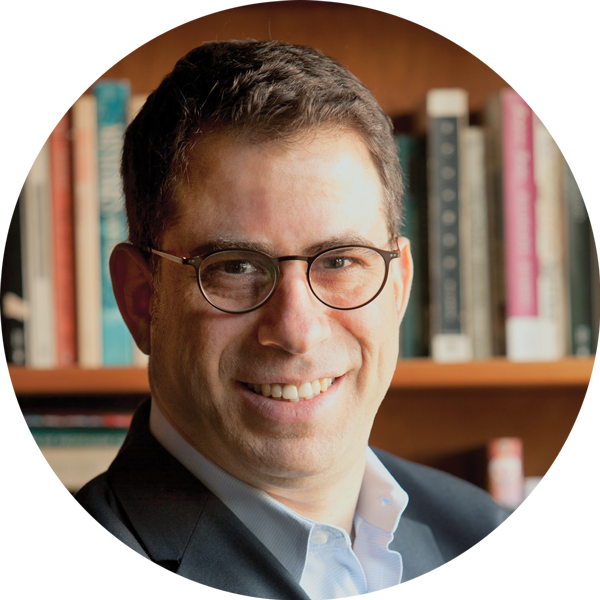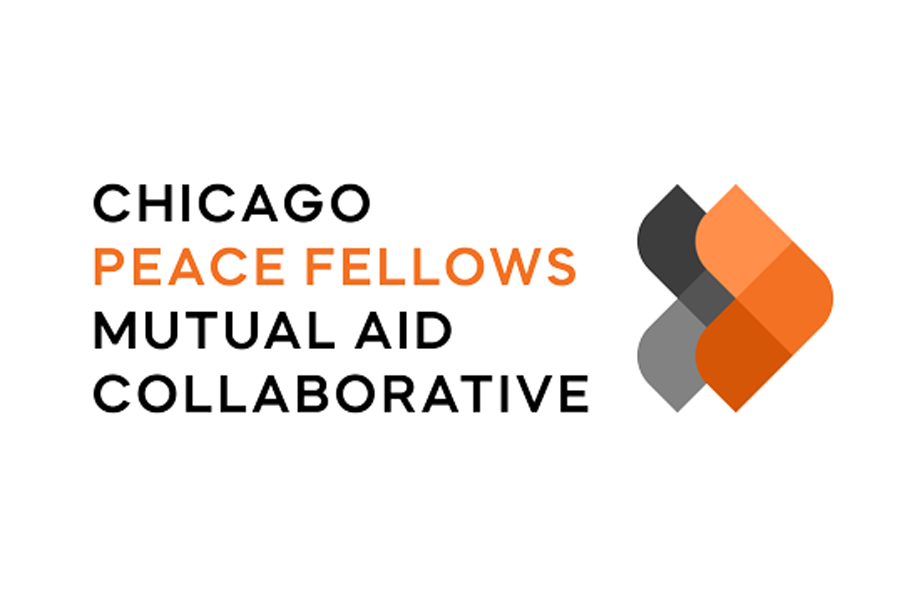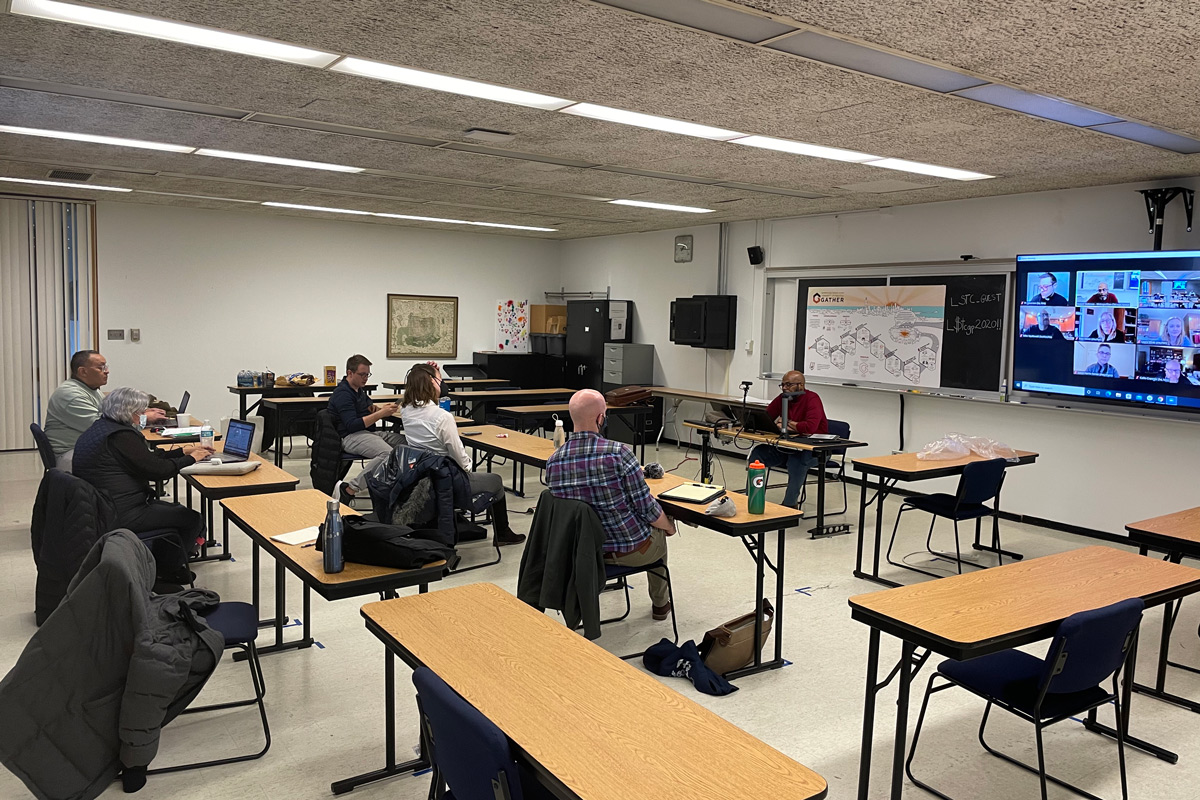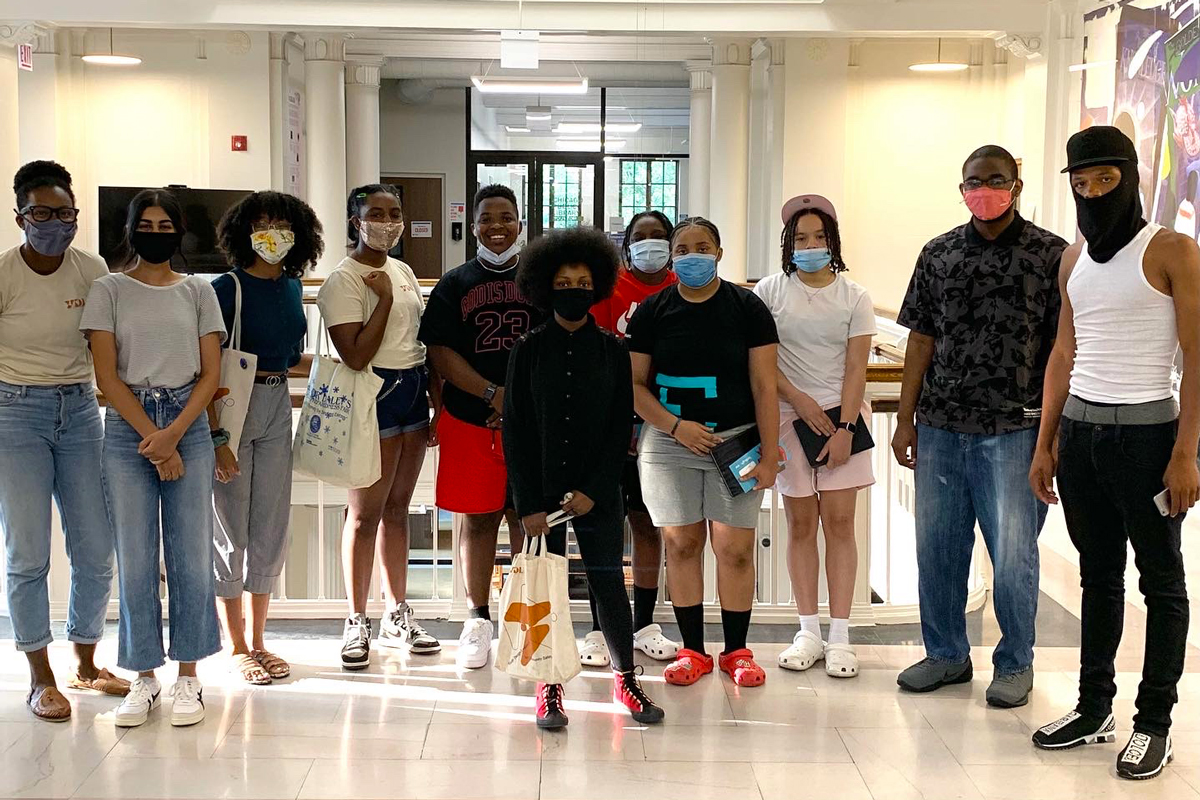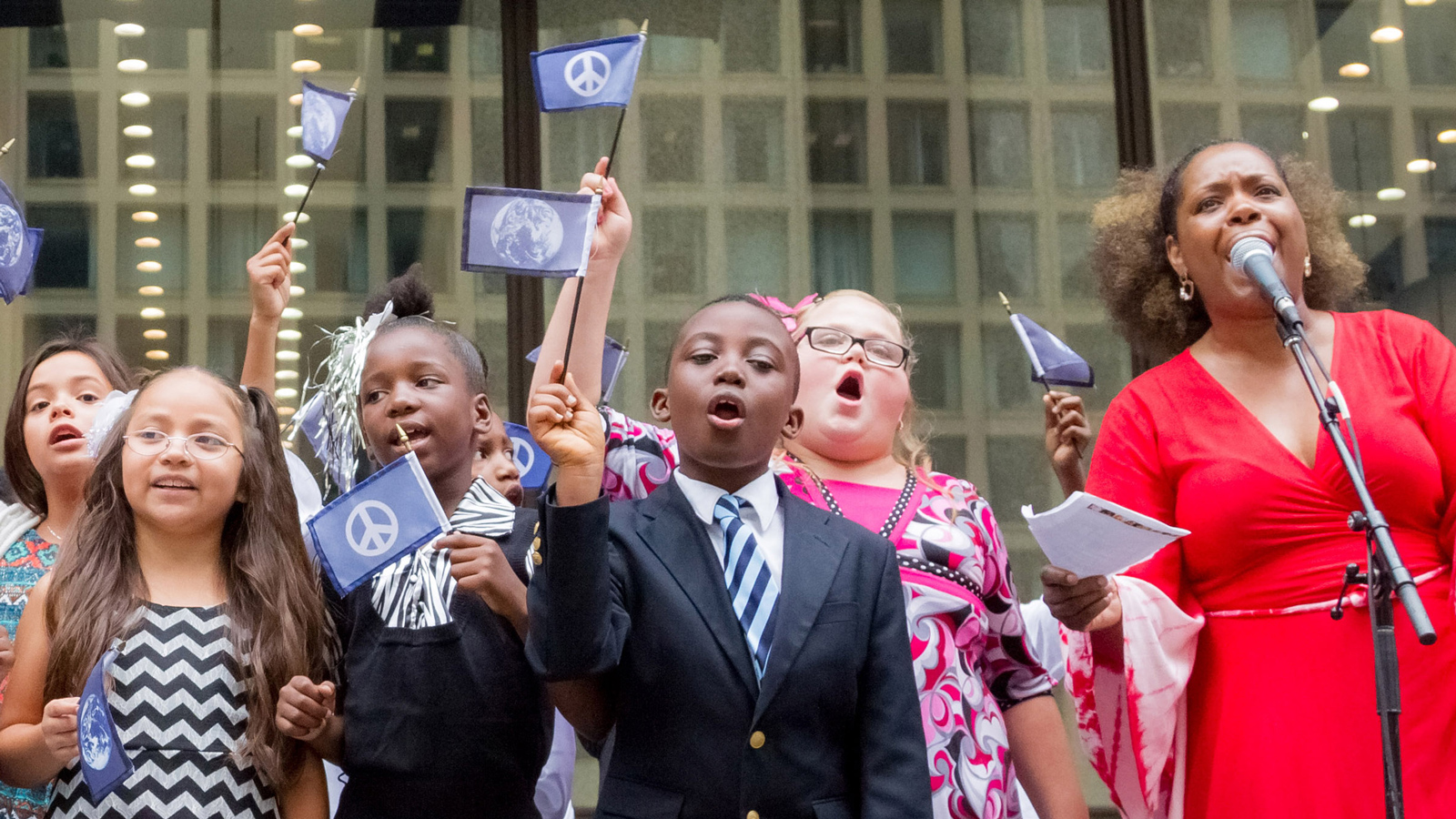The Goldin Institute hosted the editors of a new book, “Futures of Black Radicalism,” Gaye Theresa Johnson and Alex Lubin, for a conversation with nearly forty activists, journalists, scholars, students and others interested in the themes raised in the book. The book reflects on the seminal work of scholar-activist Cedric Robinson, whose writings helped define the black radical tradition and the concept of “racial capitalism.”
In her opening remarks, Goldin Institute Advisory Board member Dr. Gaye Theresa Johnson explored how grassroots political movements based in African American communities are expanding their views to a global level. Co-Editor Alex Lubin began by reviewing the central themes raised in the book, including important essays from Angela Davis, Robin D.G. Kelly and many others on topics that range from reflections on the life of Malcolm X, activism in the Americas, and the struggle for peace and justice in Israel/Palestine.
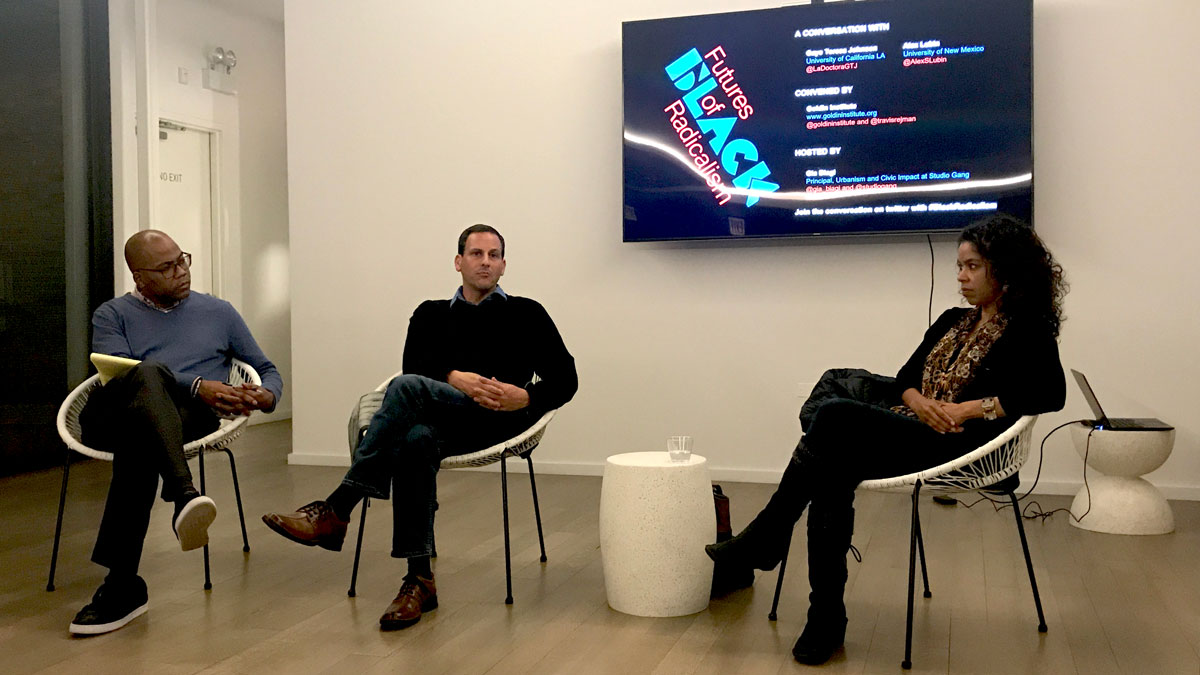
Providing highly relevant analysis in the wake of the mass organizing and coalition building against police brutality in Ferguson, Baltimore and Hong Kong, “Futures of Black Radicalism” is dedicated to the work of Cedric Robinson, an influential scholar and author of “Black Marxism: The Making of the Black Radical Tradition.” Robinson died in June 2016, just as “Futures of Black Radicalism” was being finished.
“This is a difficult time to have this conversation. We thought about the future of black radicalism and realized there is no future without a deeply rooted past.” -- Gaye Johnson, Goldin Institute Board of Advisors and Associate Professor at UCLA.
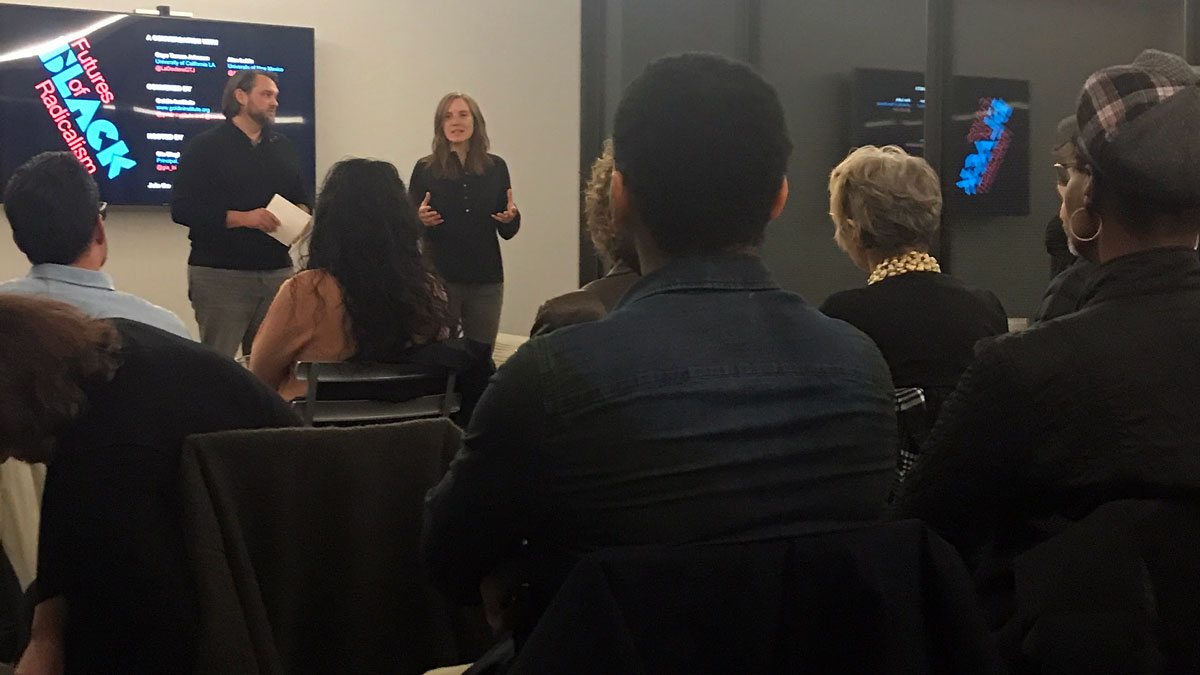
Jimmie Briggs, the Goldin Institute’s Coordinator of Community Learning and Collaboration, moderated the lively conversation following initial comments by Johnson and Lubin. Audience members discussed the challenge for radical movements operating in capitalist countries, the role of youths, and asked for practical ideas to create coalitions between activists, academics and neighborhood residents.
“When regimes of race seem most firm, it is precisely where they are weak.” -- Alex Lubin, Professor of American Studies at the University of New Mexico.
A special thank you to Gia Biagi, Principal for Urbanism and Civic Impact, and the team at Studio Gang for hosting the discussion in their offices.
